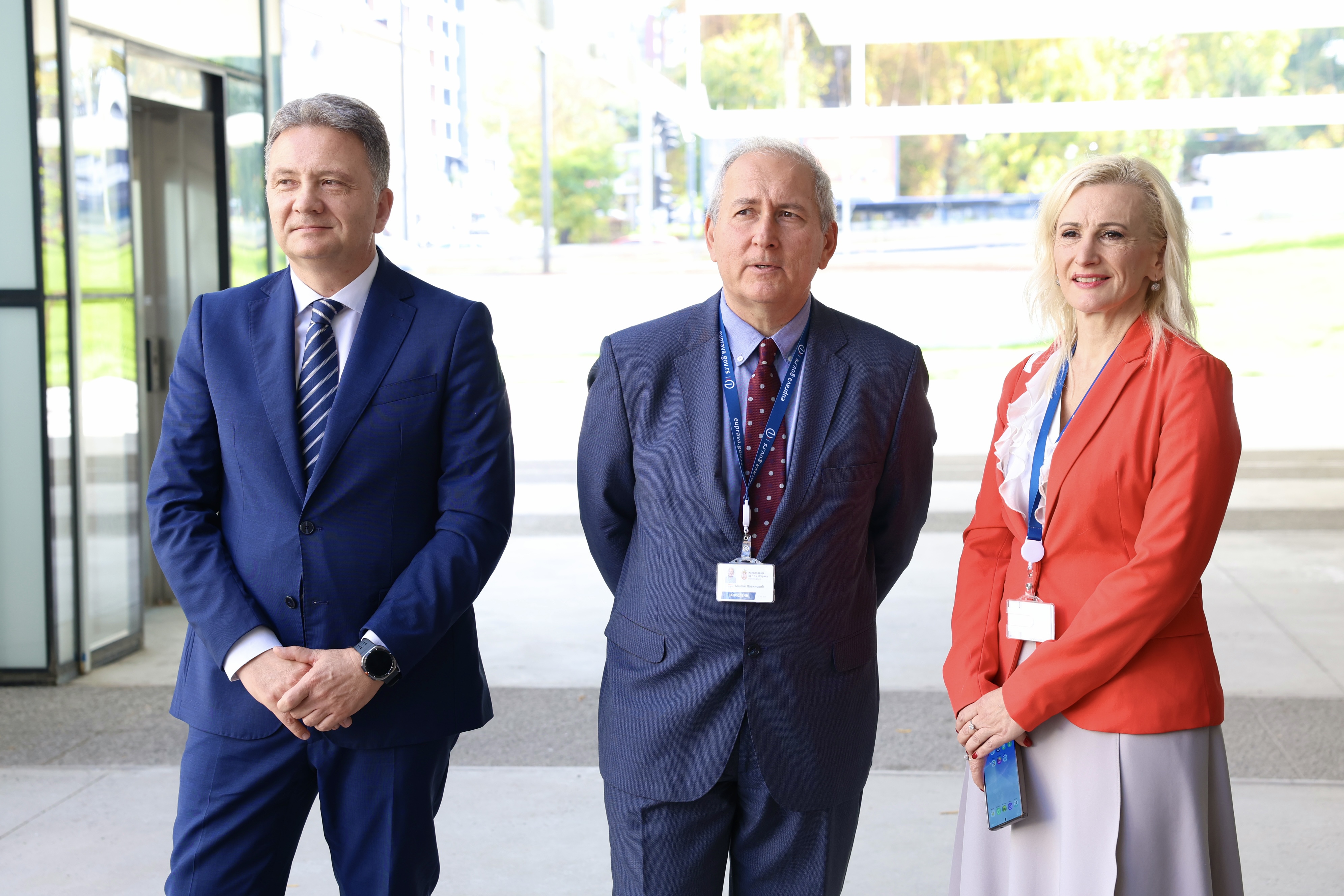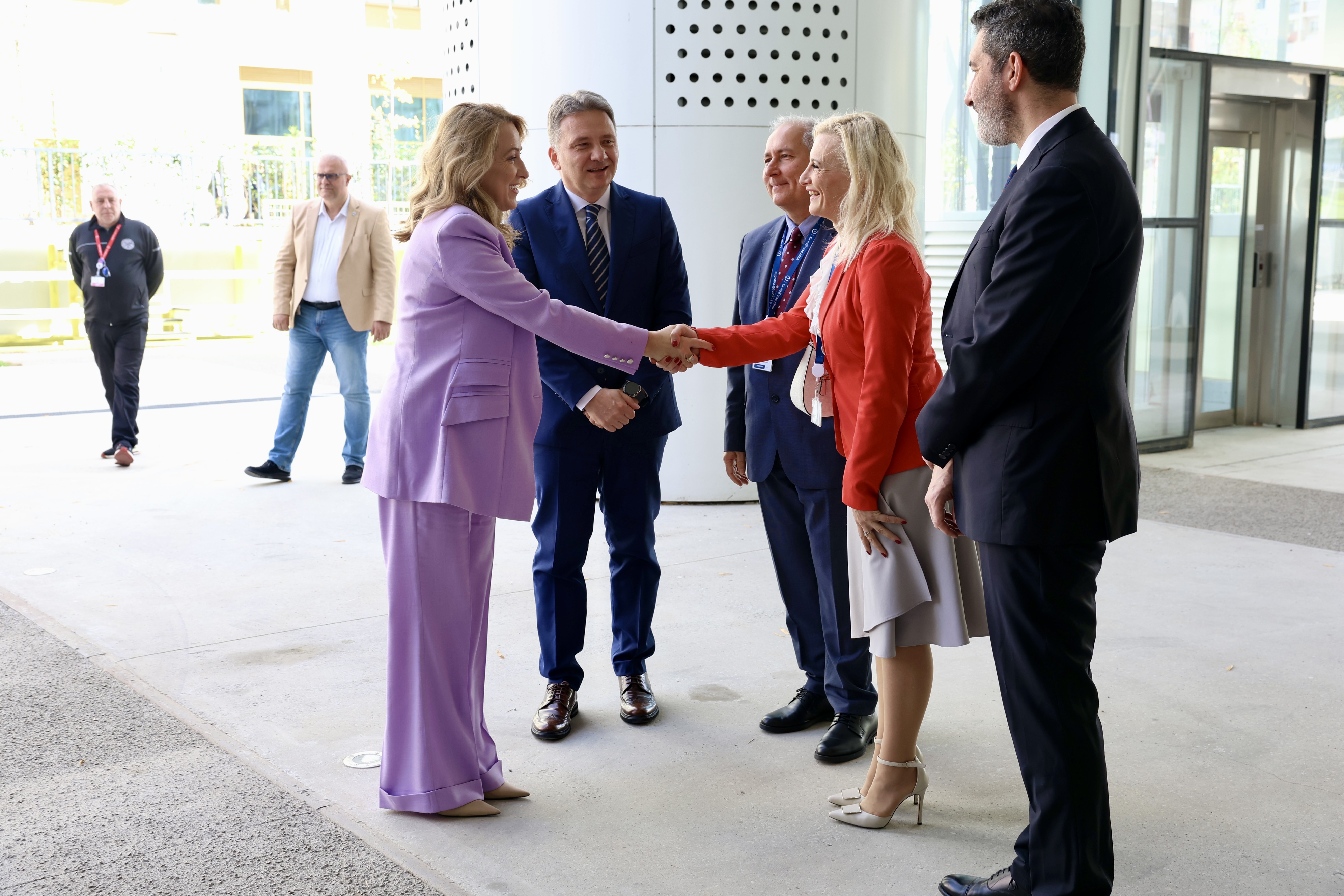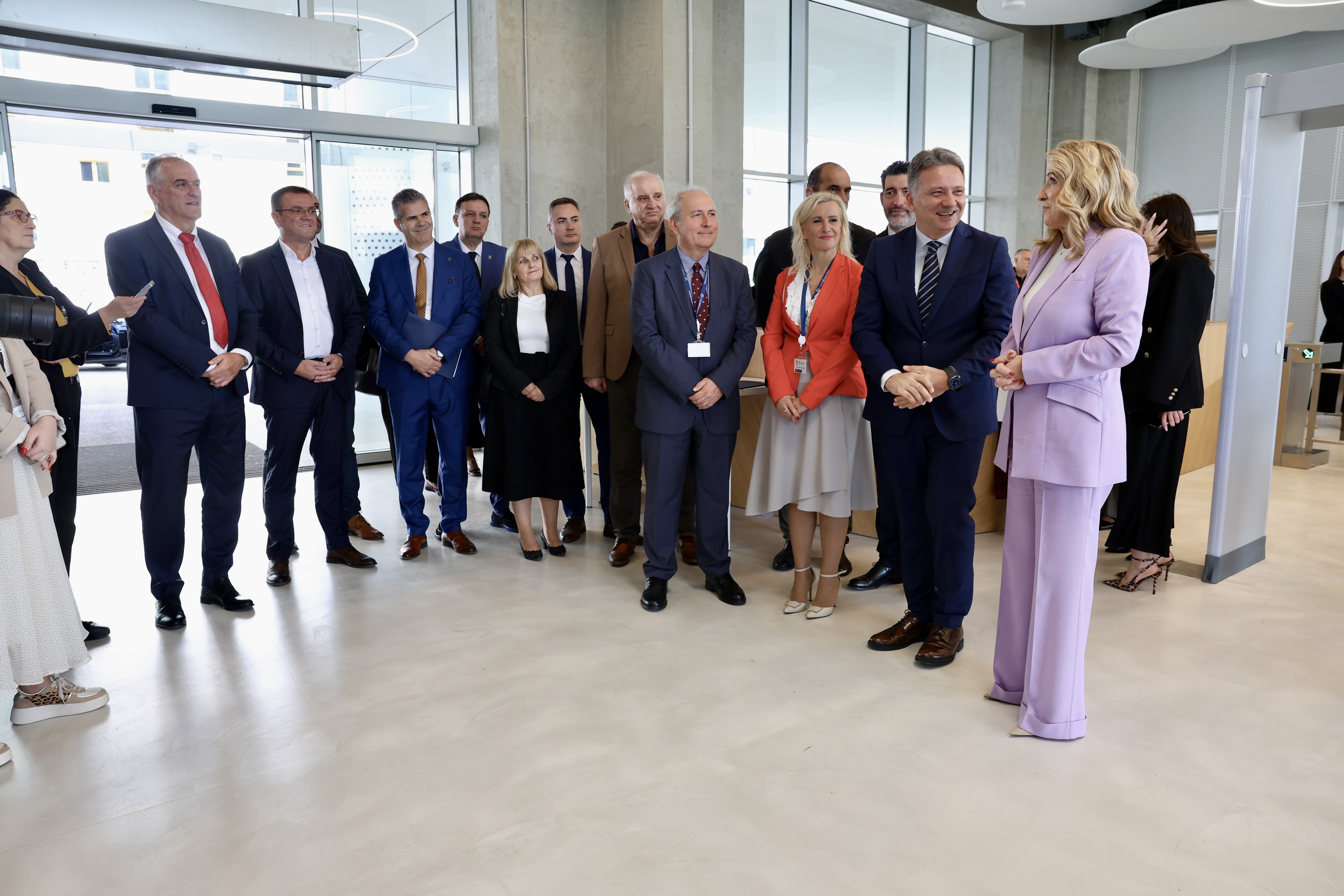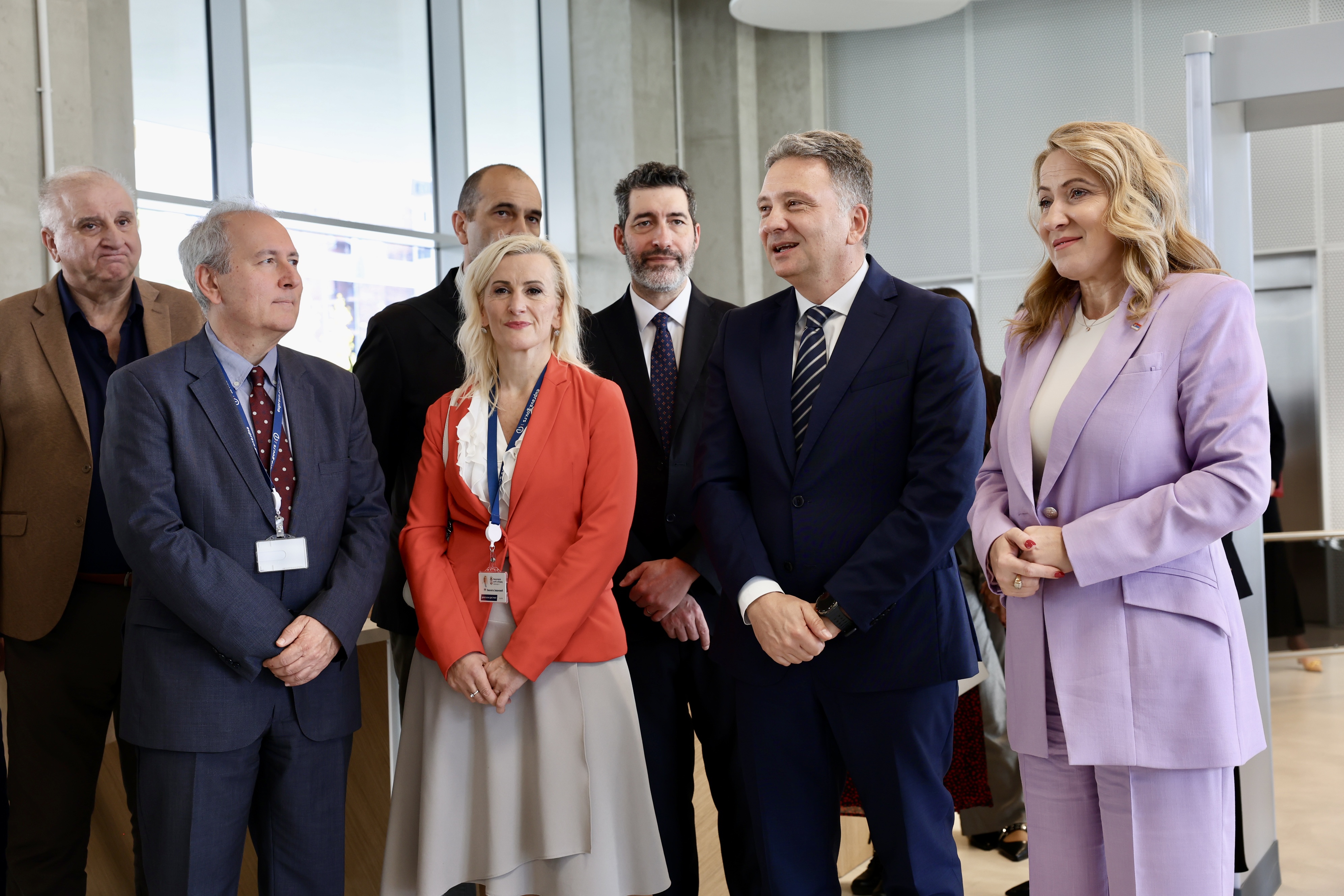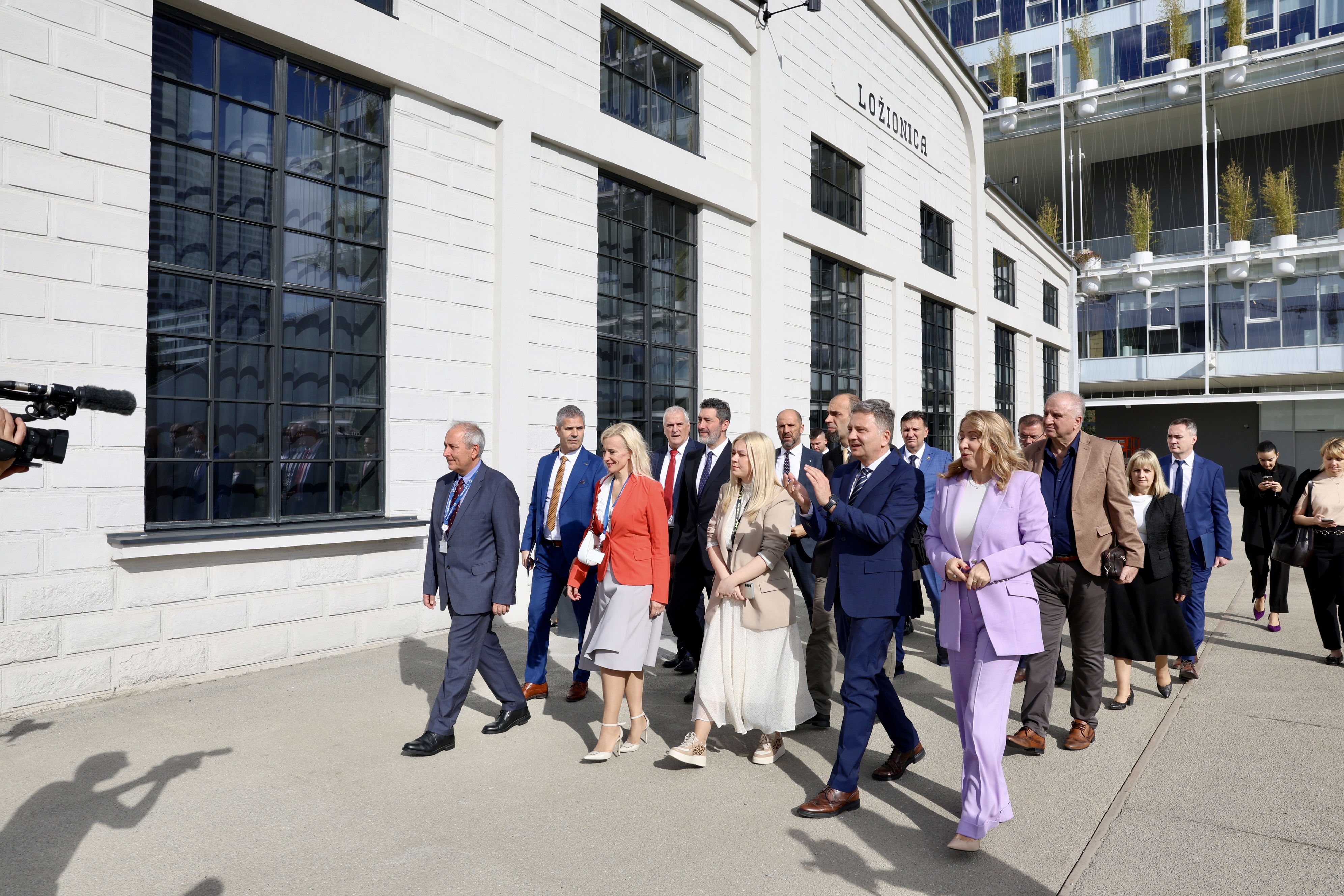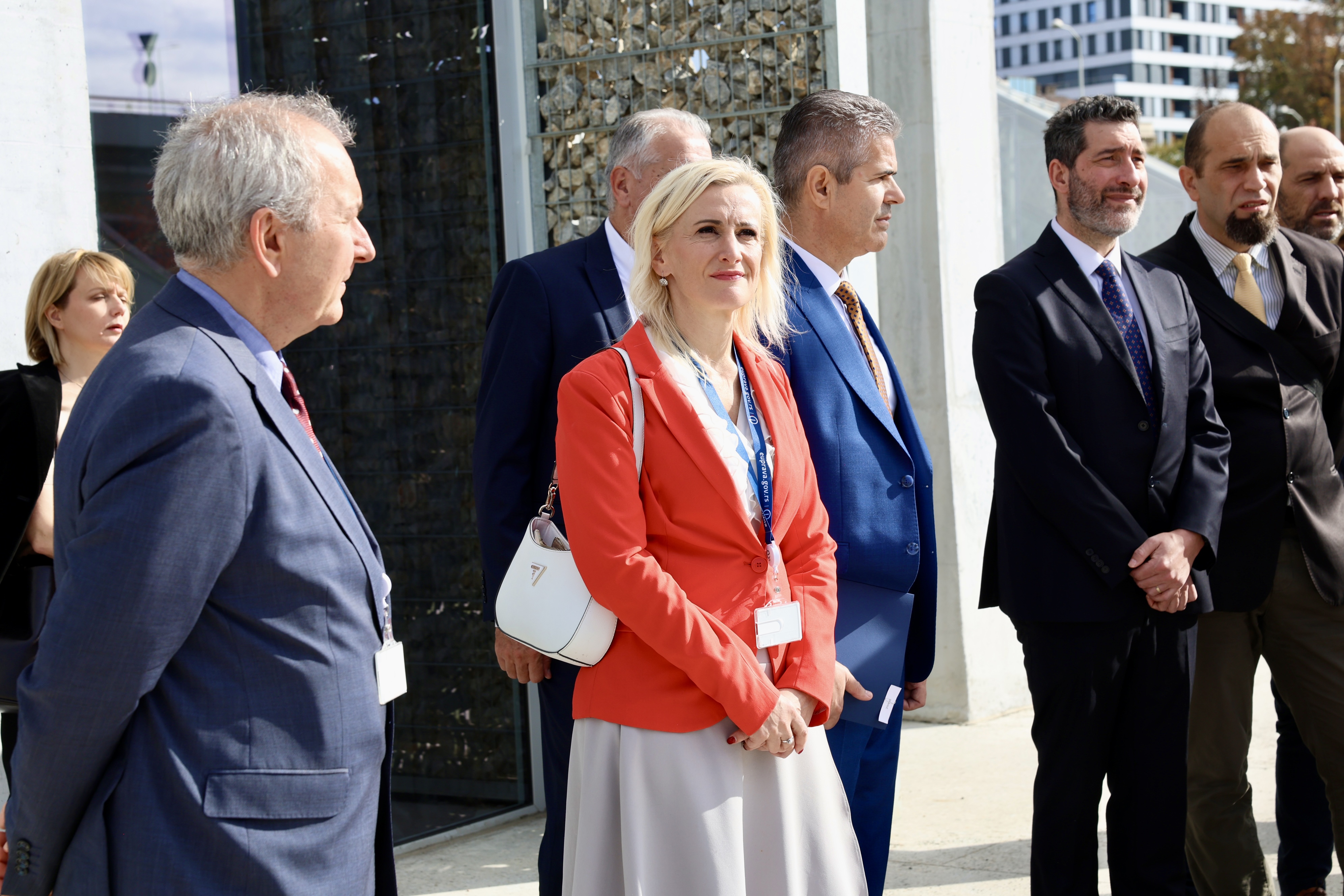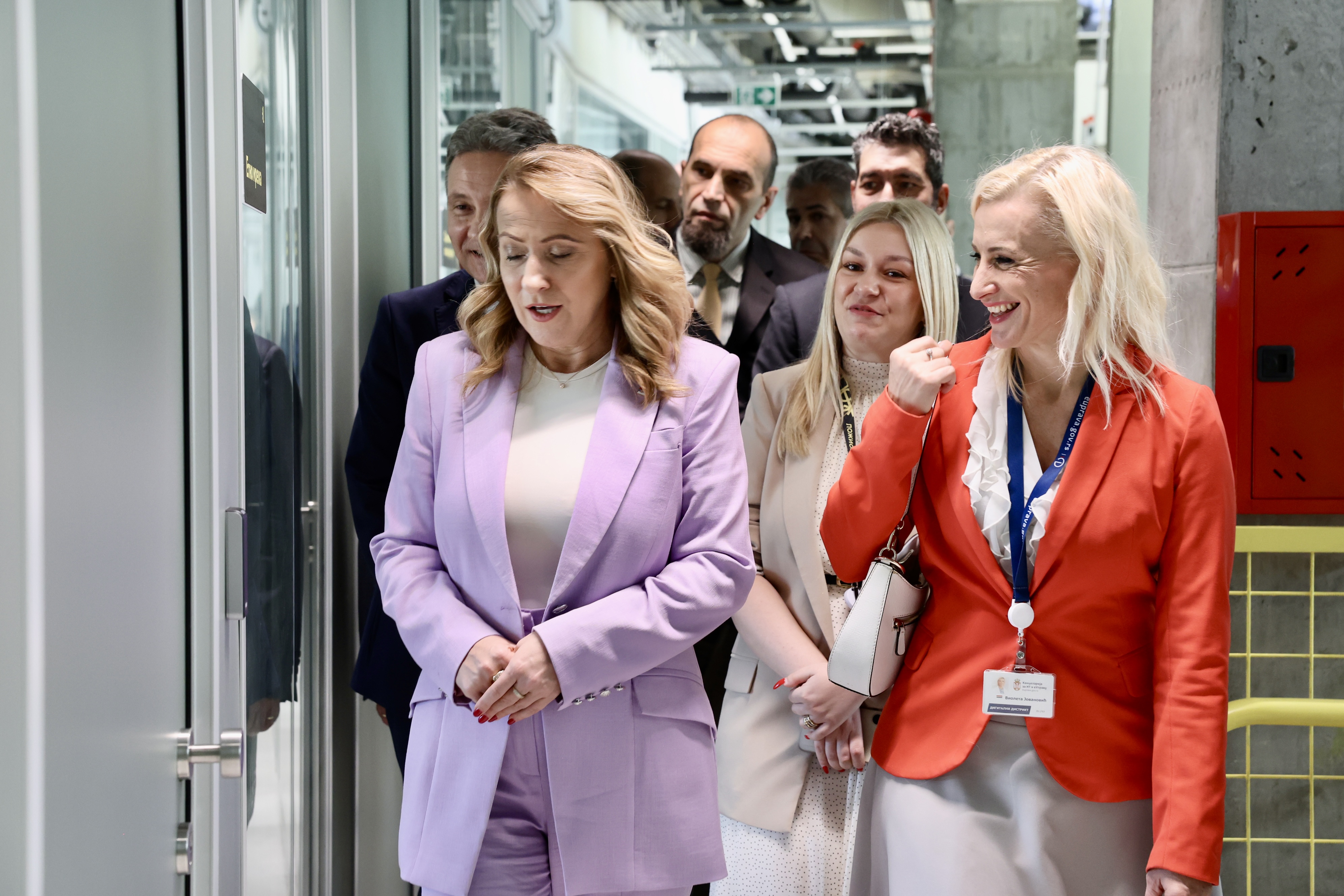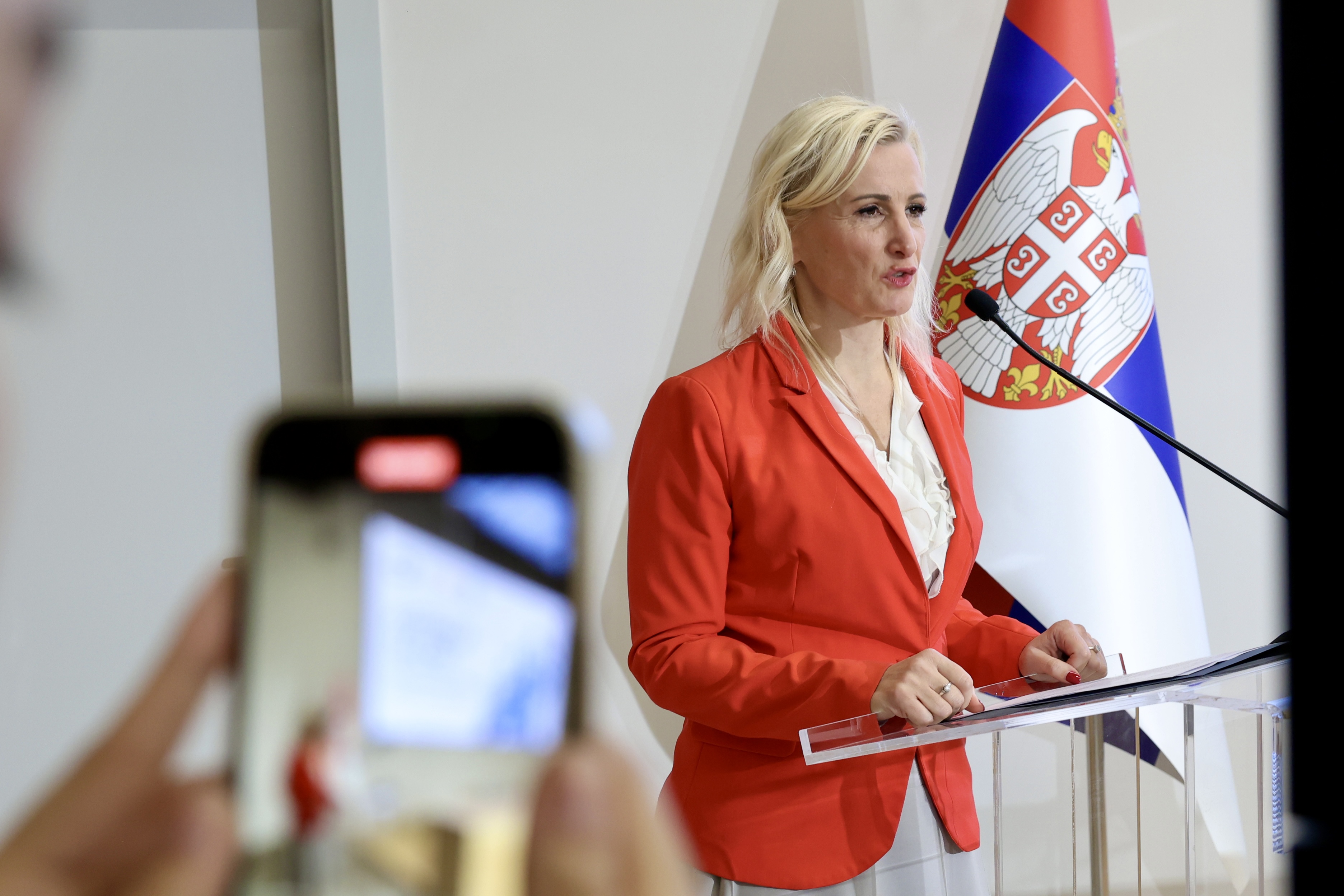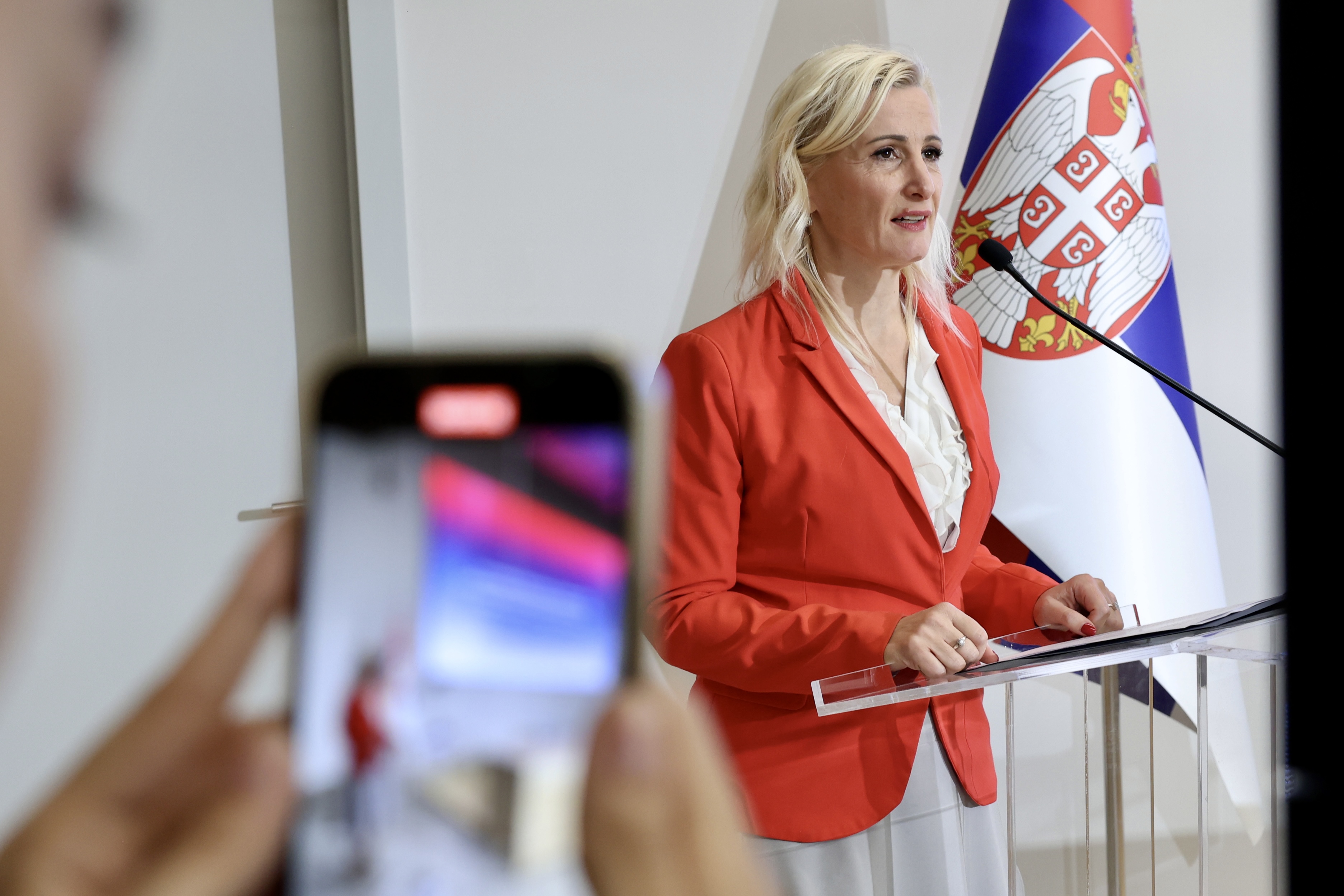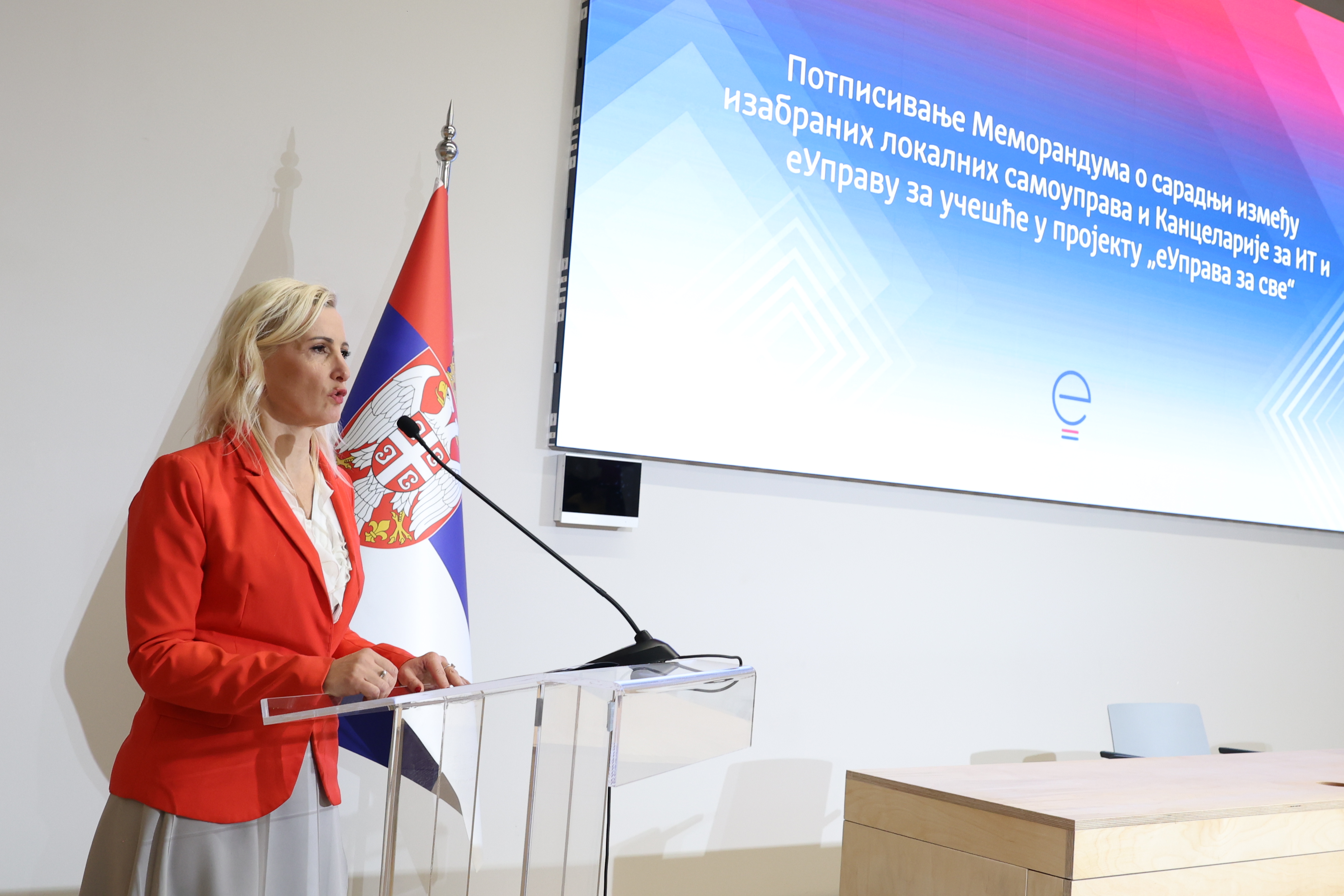Ten Cities and Municipalities Continue the Digital Transformation Through the “e-Government for All” Project
Today, the Director of the Office for IT and eGovernment, Mihailo Jovanović phD signed a Memorandum of Cooperation with the mayors and representatives of selected local self-governments that have become part of the project “e-Government for All.”
This project enables the local self-governments of Beočin, Bela Palanka, Čačak, Despotovac, Ćuprija, Kragujevac, Niš, Pirot, Veliko Gradište and Vranje to modernize public services and make access to electronic administrative services easier for citizens. Around 40 cities and municipalities applied to the public call, and the ten selected were assessed as the best.
“Our goal is for electronic services to be used as much as possible, and for the local self-governments to continue with digital transformation more steadfastly. The project ‘e-Government for All’ means that citizens can complete administrative tasks in their places quickly, simply and transparently — without paper and unnecessary trips to the counter. With 10 local self-governments we will intensively work on application of eArchive, ePayments and eSeal in the cloud, use of eInbox and increasing the number of eCitizens, along with improving infrastructure for service delivery. In this way we are bringing a modern public administration closer to citizens, saving time, reducing costs and raising quality of life,” said Dr Mihailo Jovanović.
The project is jointly initiated by the Office for IT and eGovernment, the Ministry of Public Administration and Local Self‑Government, the United Nations Development Programme (UNDP) and NALED, with the goal of making digital government accessible to all — regardless of the size and capacities of the local self-government.
The Minister of Public Administration and Local Self-Government, Snežana Paunović, emphasized that the “e-Government for All” project is another important step toward ensuring that digital Serbia is not a privilege but a right of all citizens. Through this programme, the ten local self-governments will receive expert, technical and mentoring support to introduce modern electronic services so that public services across Serbia become faster, simpler and more accessible. The Minister stressed that technology by itself does not bring progress — rather it is people who with their knowledge and motivation improve public administration. Therefore, she said, the goal of the Ministry is to support local self-governments in strengthening capacities and building a modern, efficient and fair state, in which queues, paper and counters are a thing of the past, and public services are available to everyone, regardless of where they live.
Within the programme, a Digital District has been formed, composed of experts and mentors who will support local self-governments both on site and “remotely,” via phone and email. Their task is to identify the needs of cities and municipalities, conduct trainings, develop promotional materials and help with the implementation of digital services like eZUP, eInbox, ePayments, eID, eArchive, eSignatures in the cloud and others. Through the Digital District, which is part of the e-Government House, citizens will be able to actively participate in creating digital services, test them and give feedback.
“Thanks to the project, the selected local self-governments will strengthen their capacities for providing e-services, improve digital skills and bolster infrastructure, which will enable them to conduct administrative procedures more efficiently in favour of citizens and businesses. The project is expected to increase the number of users of e-services, reduce queues and facilitate the work of officials, enable electronic delivery of acts and contribute to faster resolution of citizens' requests,” said Violeta Jovanović, Executive Director of NALED.
The Deputy Resident Representative, Fabrizio Andreuzzi, pointed out that the ten selected cities and municipalities, by participating in this initiative, show readiness to respond more efficiently to the needs of citizens and businesses in their local communities.
“Together with our partners, UNDP will support these local self-governments to design and provide electronic services that are more efficient, transparent and accessible to everyone. Such services help strengthen trust between citizens and local self-governments and make communities stronger, more resilient and inclusive. By supporting cities and municipalities across Serbia to reinforce their digital capacities, we also promote more balanced regional development of the country,” said Andreuzzi.

